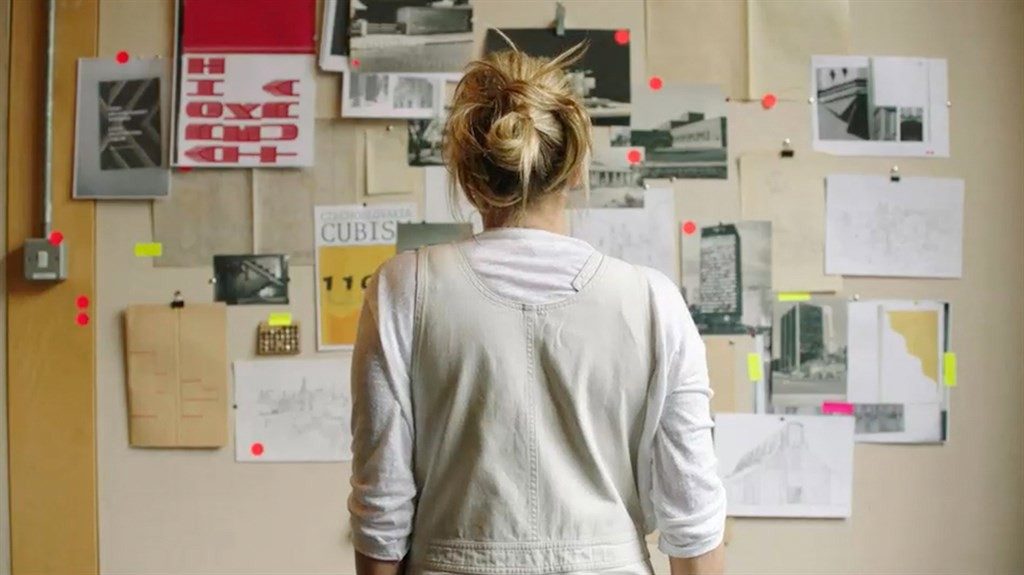Guest Post by Marina Willer
The title of my film, “Red Trees,” refers to the moment when my father discovered that he was color blind as a child, drawing trees with red leaves. It makes reference to a world where we would maybe not judge people by their color or origin. “Red Trees” tells the story of my family’s collective survival and journey to a new life in Brazil after World War II, how we went on to become a real mixture, or “fruit salad,” as my father would say.
Making “Red Trees” was my attempt to understand the shifting world we live in; looking to the past for lessons on how to deal with the ever-worsening refugee crisis. Little did I know that making this film would bring me closer to understanding my own identity as a woman of Jewish background amongst many origins — all the more surprising considering the story is told through the lens of two men, my father and his father.
My Jewish identity is defined by the trajectories of the men on my father’s side of the family: My intellectual grandfather, whose brilliance was forever getting my family in and out of trouble, and my father, a strong and remarkable man. Their stories of triumph in the face of suffering and pain came to define our identity as a Jewish family. And, as is often the case with family histories of that era, there is only space for a man’s brilliance.
The decision to use my voice for the narration of “Red Trees,” combined with the beautiful voice of the late Tim Pigott-Smith, was initially taken to provide balance to what is otherwise a male-dominated story. However, as the filmmaking process progressed, I found that my place in the narrative emerged beyond providing voiceover. I was increasingly reflecting on my personal connection to these old familial tales, weaving my own burgeoning story into the fabric of our collective family history — and subsequently redefining the way in which I understood my Jewish identity.
This new and inclusive family narrative bought me closer to my father, allowing us to break the ice on subjects that we had never previously discussed. We moved beyond the well-trodden, often sanitized stories — in other words, he opened up. We talked about what it was like to be a child during the war and explored the pain that many survivors like him have trapped inside them; pain that is buried so deep, it sometimes makes the history of the Holocaust hard to share.
Although, there were still occasions where my role as a mother, perhaps my natural place amongst the men in my family, collided with the filmmaking process in the most surreal way. On one such occasion, with the camera rolling, my father interrupted me to declare that it was time to do some grocery shopping: “There’s no food in the fridge, love, this is rubbish!” Funnily enough it was Dylan, one of my 10-year-old twin boys, who set him straight. “You have to respect Mummy as a director, not as a mummy,” he said. I think the experience of watching me make “Red Trees,” in which they both appear, has been very special for my boys; they have seen me in a completely different context, informing their perspective of their mummy’s place in the world.
I am very happy with “Red Trees.” It’s a film made completely from love. It’s a story of acceptance, hope, and light in such hard times. The real treat is when you discover strong relationships, the wonderful people who give so much time and talent and create beautiful things. There is a real magic in making art and making it together.
“Red Trees” opens in NY and LA today. A wider theatrical release will follow in the coming weeks. Check out the film’s website for more information.
Filmmaker and graphic designer Marina Willer was born in Brazil and is based in London. Willer’s work has been shown at Fondation Cartier in Paris, the Institute of Contemporary Arts in London, and various international festivals. In 2003 her short film “Cartas da Mãe” won the Best Brazilian Short Film Award at the São Paulo International Film Festival and was nominated for Best Video at the Cinema Brazil Grand Prize. Her 2014 short film “Exposed” was used to introduce the Richard Rogers exhibitions at Paris’ Pompidou Centre and London’s Design Museum. “Red Trees” is Willer’s feature directorial debut.







